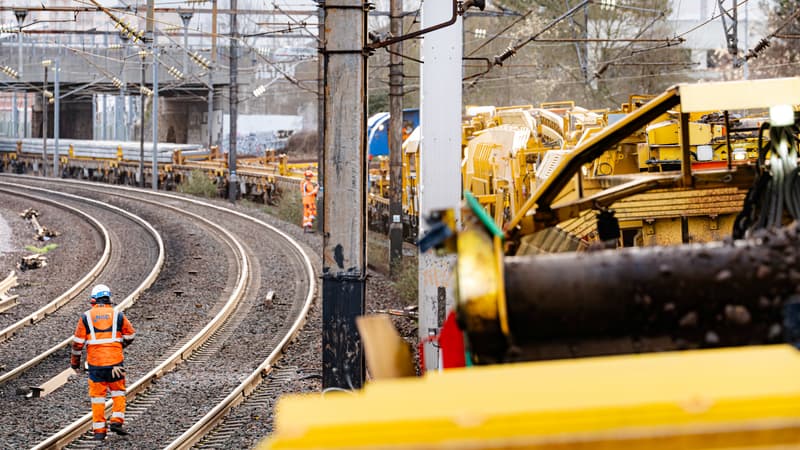Malicious acts are a nightmare for the SNCF. High-speed rail traffic between Lyon and Avignon was seriously disrupted this Monday, October 27, following an “act of vandalism.” The cause of these disturbances is a “fire in the signaling cables”, explains the SNCF, while its teams are still “establishing a precise diagnosis of the damage”.
We also remember the large-scale sabotage that took place in 2024, just before the opening ceremony of the Olympic Games and which caused delays for hundreds of thousands of passengers.
In recent years, vandalism has become a major concern for the SNCF. Not so much because of the increase in events but above all because of their increasingly higher cost.
Very expensive copper
In fact, acts of vandalism are only increasing slightly. “In 2024, the number of malicious acts and intrusions will continue to increase with an increase of +5 to +10%,” explains SNCF Réseau in its 2024 security report.
But “this increase must be qualified to the extent that agent reports advance and the deployment of online surveillance means has been especially important in 2024,” the company specifies.
But despite a controlled number of incidents, malicious acts are increasingly costing the SNCF. And, in particular, metal thefts, which increased considerably in 2023 and stabilized at a high level in 2024. They occur in a context in which the price of metals and, in particular, the price of copper is particularly high. Thus, the damage caused by these flights doubled in 2024 compared to 2023, amounting to almost 20 million euros in direct costs.
“High intensity events”
Furthermore, the nature of reported crimes (all categories combined) is evolving towards “high intensity acts”, according to SNCF Réseau. This costs the railway company more and more.
“Thus, the amount of damage and impacts on regularity continued the increase that began in 2021 (with a tripling of damage related to flights and a 27% increase in minutes lost to traffic, not counting canceled trains),” the report continues.
The consequences are also amplified by traffic densification: with the arrival of competition, there are more trains running on a given line (in particular Paris-Lyon-Marseille) and, in the event of an incident, there are more braked trains and, therefore, more passengers affected.
However, in the event of a major delay or cancellation, the airline will need to refund travelers.
Investments in security and surveillance
To reduce the impact of these incidents, SNCF Réseau teams are increasingly trained. “Our maintenance agents, cable and telecommunications manufacturers, are mobilized every time to repair the facilities, often in record time, whatever the weather conditions. Their only objective: to resume traffic as soon as possible, for all railway companies and passengers,” explains the manager.
But the best thing would be to avoid theft or damage. For this reason, the SNCF reinforces monitoring of the roads. In 2024, after the sabotage that affected the network in three points just before the opening of the Olympic Games, “a reinforced surveillance mechanism was put in place,” the Minister of Transport indicated then.
More generally, the SNCF highlights its “security investments made for better physical protection of the assets that make up the railway network against malicious acts.” And their cost is not negligible: they almost doubled between 2023 and 2024, going from 17.8 to 35.1 million.
These investments include, among other things, the physical protection and security of premises (and in particular signal boxes), the protection of cables against the risk of theft, strengthening the resistance of certain railway components installed at level crossings or the deployment of mobile alarm devices.
Source: BFM TV


